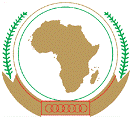 |
| AFRICAN UNION |
DURBAN, South Africa, African Press Organization (APO)/ — Ministers from over 50 African countries met to reinforce their position, demanding an ambitious second commitment period under the Kyoto Protocol, effective action under the Bali Action Plan and scaled-up finance, ahead of the final week of the UN Climate Conference in Durban.
At a meeting on Sunday 4 December, the Ministers discussed the latest science showing severe threats to African food security; developments in the negotiations; and a strategy to ensure that the outcomes of the Durban climate conference are comprehensive enough to protect Africans from the worst effects of climate change.
The African Common Position on Climate Change, which was agreed 15-16 September 2011, in Bamako, Mali, highlights key positions that African Ministers will be advancing in Durban at the ‘high-level’ international ministerial segment of the conference later this week.
Africa will be hit first and hardest by global climate change, according to the Intergovernmental Panel on Climate Change. The continent has contributed the least to climate change, and is among the least equipped to adapt its adverse effects.
More than one billion people in Africa, and millions of others living in small islands, least developed and other vulnerable countries will bear the potentially catastrophic effects of land loss, food and water shortage, crop reduction, and flooding.
In response, African Ministers will be advancing the African common position including the following positions in Durban:
A Second Commitment Period of the Kyoto Protocol
“Developed country Parties to the Kyoto Protocol must honour their commitments through ambitious mitigation commitments for a second and subsequent commitment periods. They must reduce their emissions of greenhouse gases by at least 40 per cent during the second commitment period from 2013 to 2017 and by at least 95 per cent by 2050, compared to 1990 levels, as an equitable and appropriate contribution.” SeyniNafo, spokesperson of the African group of negotiators, said.
“We stress the urgency of agreeing a second commitment period in Durban and of elaborating measures to avoid a gap between commitment periods,” he said.
Advancing the Bali Mandate
“We expect that Durban will conclude the operationalization of effective and accountable institutions under the Conference of the Parties in relation to, adaptation, technology and finance in accordance with the relevant principles and provisions of the Convention, the Bali Action Plan and the Cancun decisions,” said TosiMpanuMpanu, Chair of the African group of climate negotiators.
“We reaffirm that the two tracks of negotiations under the Convention must continue as separate tracks and that a balanced outcome in Durban must include a second commitment period under the Kyoto Protocol, and a legally binding outcome on the various pillars of the Bali Action Plan in accordance with the Bali Roadmap,” he said.
Securing necessary climate finance
“African Ministers are concerned about insufficient transparency and slow disbursement of the financial resources pledged by developed countries as “fast start” finance for the period 2010-2012 and indications that a small proportion of these resources are “new and additional”,” said Emily Massawa of the Secretariat of the African Ministerial Conference on the Environment.
“Ministers have noted the pledge by developed countries to mobilize jointly $100 billion per year by 2020, and reiterate Africa’s position that developed countries should by the year 2020 provide scaled up financial support based on an assessed scale of contributions that constitutes at least 1.5 per cent of the gross domestic product of developed countries, in order to curb climate change and meet the needs of developing countries to tackle climate change and its adverse effects,” she said.
NOTES
The African Group will be having a press conference tomorrow 07 December 2011 at 16:30 at the Durban Climate Conference.
The African Group is the group of 53 African countries represented in the UN climate change negotiations. It is chaired by Mr. TosiMpanuMpanu of the Democratic Republic of the Congo.
SOURCE
African Union Commission (AUC)
No comments:
Post a Comment